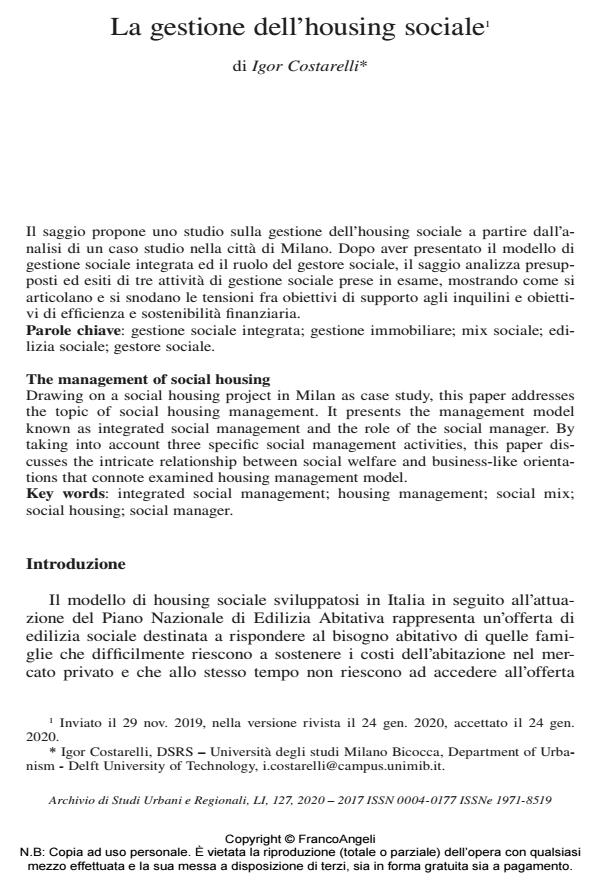The management of social housing
Journal title ARCHIVIO DI STUDI URBANI E REGIONALI
Author/s Igor Costarelli
Publishing Year 2020 Issue 2020/127
Language Italian Pages 18 P. 5-22 File size 114 KB
DOI 10.3280/ASUR2020-127001
DOI is like a bar code for intellectual property: to have more infomation
click here
Below, you can see the article first page
If you want to buy this article in PDF format, you can do it, following the instructions to buy download credits

FrancoAngeli is member of Publishers International Linking Association, Inc (PILA), a not-for-profit association which run the CrossRef service enabling links to and from online scholarly content.
Drawing on a social housing project in Milan as case study, this paper addresses the topic of social housing management. It presents the management model known as integrated social management and the role of the social manager. By taking into account three specific social management activities, this paper discusses the intricate relationship between social welfare and business-like orientations that connote examined housing management model.
Keywords: Integrated social management; housing management; social mix; social housing; social manager.
Igor Costarelli, La gestione dell’housing sociale in "ARCHIVIO DI STUDI URBANI E REGIONALI" 127/2020, pp 5-22, DOI: 10.3280/ASUR2020-127001